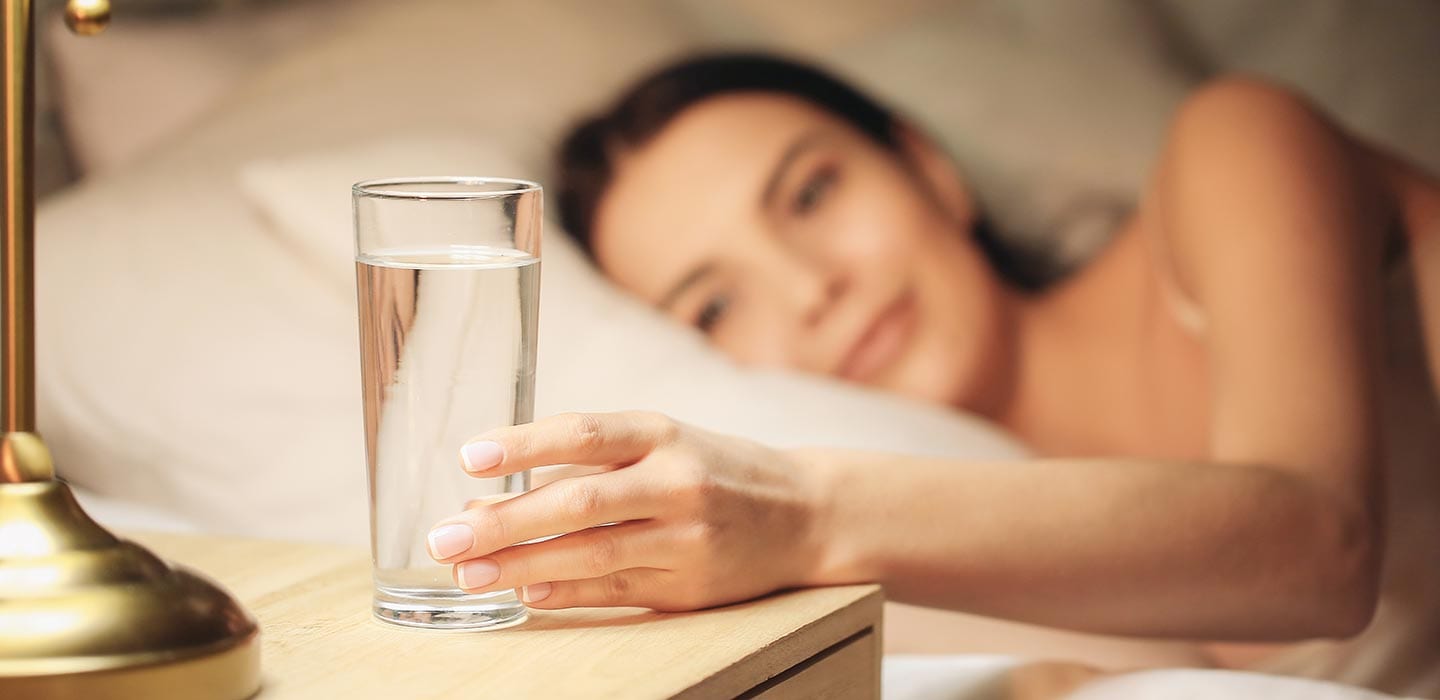
NUTRITION
Stay Hydrated, Sleep Better!
Water is essential for the human body and staying properly hydrated is important for you to function at optimal levels, and this includes optimal sleep! Dehydration can cause you to feel sluggish...

The Zest Team
· 3 min read
How much water should I be drinking?
It’s a commonly asked question, and the answer can be less than satisfying: “it depends.” How much water someone should drink can vary based on factors such as weight, exercise, environment, overall health, pregnancy, etc.
The U.S. National Academies of Sciences and Medicine suggests:
- About 15 cups (3.7 liters) of fluids a day for men
- About 11.5 cups (2.7 liters) of fluids a day for women
Water is essential for the human body and staying properly hydrated is important for you to function at optimal levels, and this includes optimal sleep. Dehydration can cause you to feel sluggish, extremely fatigued, suffer from muscle cramps and headaches – all symptoms that make it hard to sleep. Additionally, if daytime fatigue is driven by dehydration rather than poor sleep alone, it's an easy way to boost your energy and performance. If you want to bump up your water intake, be sure to speak with your coach who can help you make changes and measure the affect of the change.
Tips to drink more water:
- Drink a glass of water as soon as you wake up. Just from air exchange overnight, we can wake up dehydrated, so starting with a glass of water is essential to bring our hydration back up to baseline.
- Set frequent reminders on your phone to drink up.
- Use a water bottle that helps you track the amount of water you have consumed.
- Replace sugary drinks with water.
- Get more water from your food and eat extra fruits and veggies (think watermelon and spinach).
What if drinking more water increases nighttime bathroom breaks?
This might feel like a catch 22, right? While it can be common to wake up once a night to urinate, speak with your doctor if you notice it’s becoming more frequent and impacting your sleep.
If water intake is increased in the first 2/3rds of the day it should not affect nighttime bathroom breaks. If you are affected by wake-ups, take a look at our info on nighttime urination and possible causes.
Tips and tricks:
- Stop drinking water approx. 2-3 hours before bed
- Try to space your water consumption throughout the day
- Limit evening caffeine or alcohol which can increase urination
- Use the bathroom right before bed
Our circadian rhythm is actually responsible for helping to balance our hydration levels. During the second half of sleep, a hormone called vasopressin is turned on, which promotes water retention. So while dehydration can lead to poor sleep, poor sleep can also increase the likelihood of dehydration.
Proper hydration tactics can have a huge impact on sleep and overall health improvements, so drink up and cheers!
References:
Surprising Ways Your Hydration Level Affects Your Sleep | Sleep Foundation
Hydration is essential to health, but its links to sleep are overlooked. Learn how hydration affects sleep and how sleep deprivation impacts dehydration.

How much water do you need to stay healthy?
Know how much water to drink to stay healthy and hydrated.

The Relationship Between Water And Sleep Health & How To Avoid Dehydration
If you didn’t see my earlier post about Sleep Doctor PM and want a better way to go to sleep and go back to sleep if you wake up, have a look. The relationship between

NUTRITION
#ZESTTEAM





